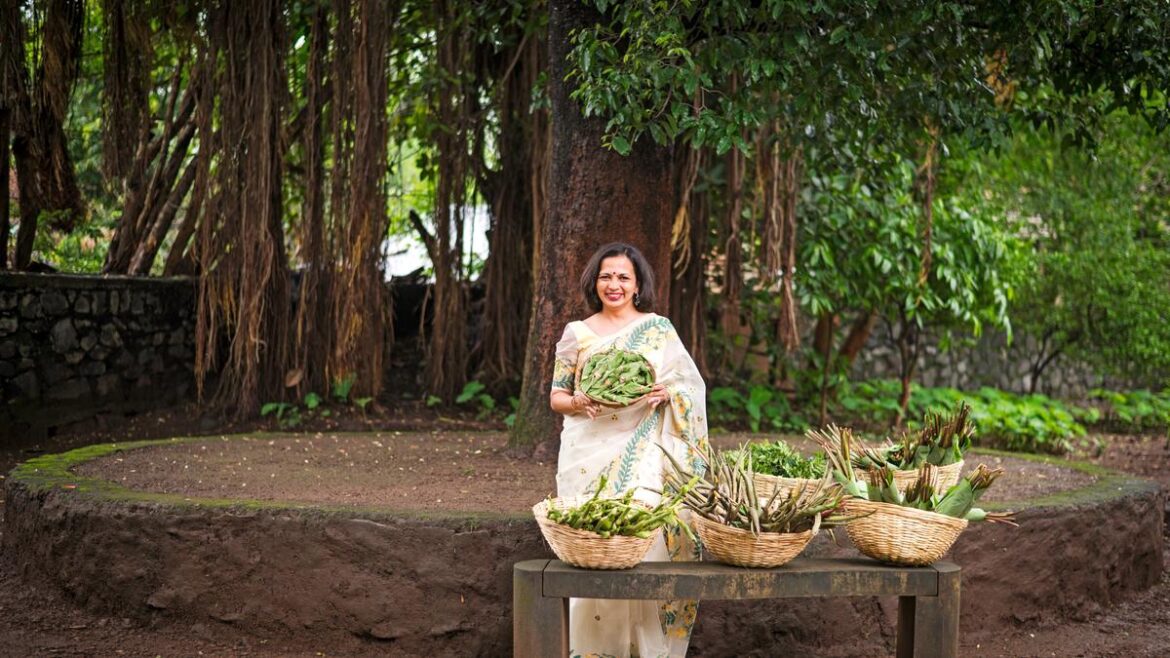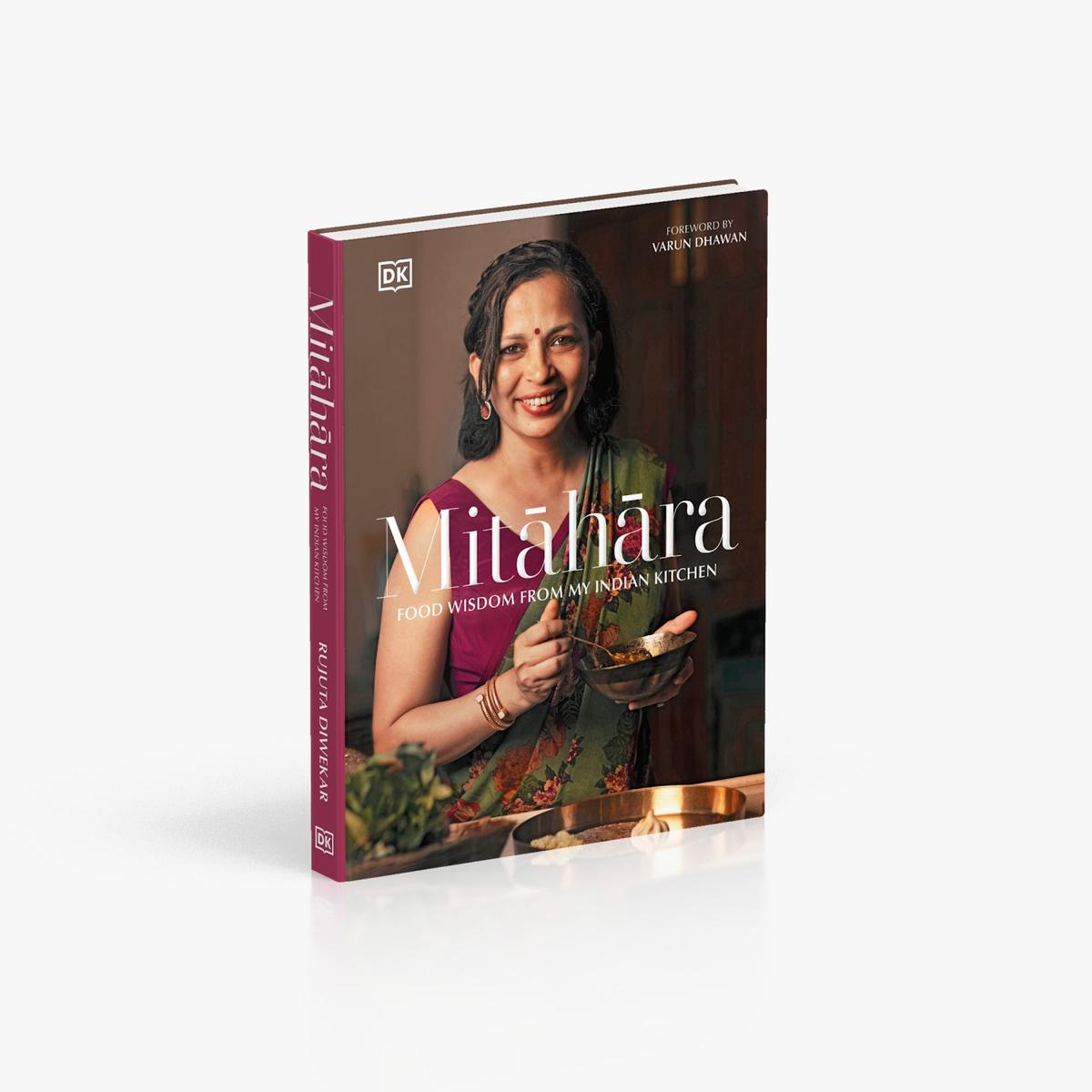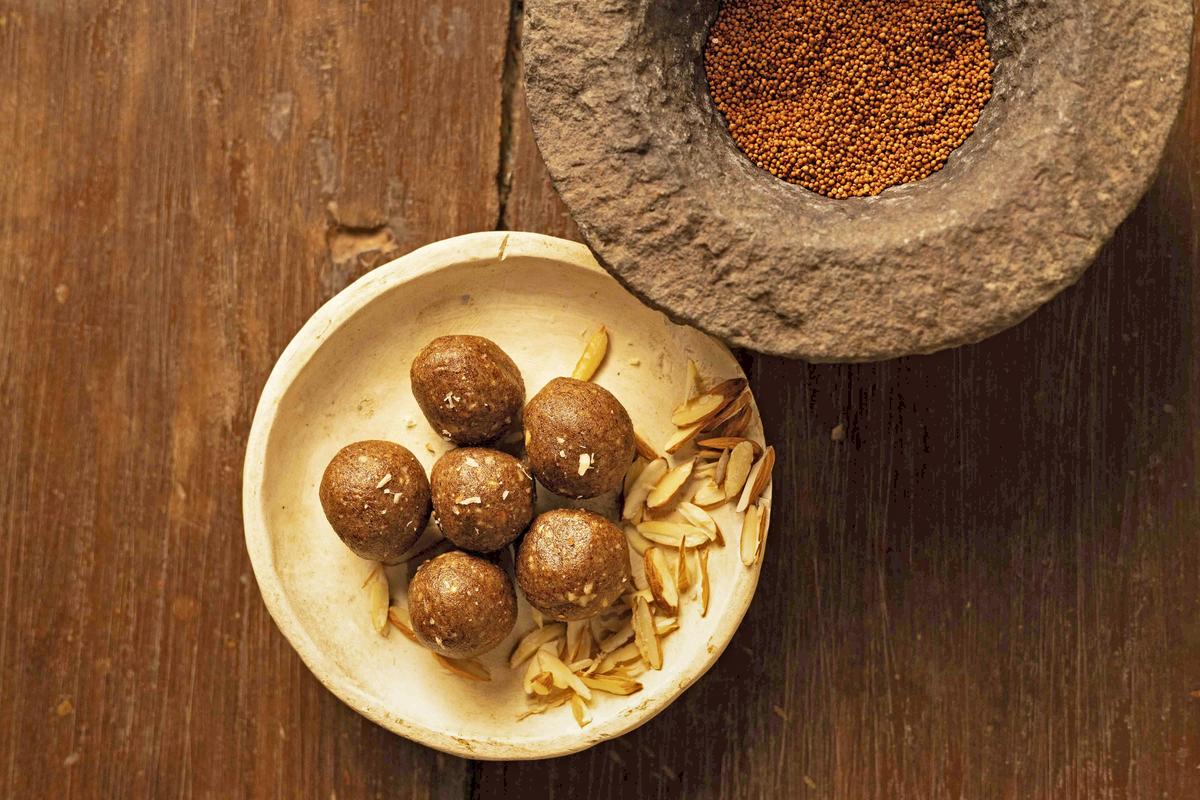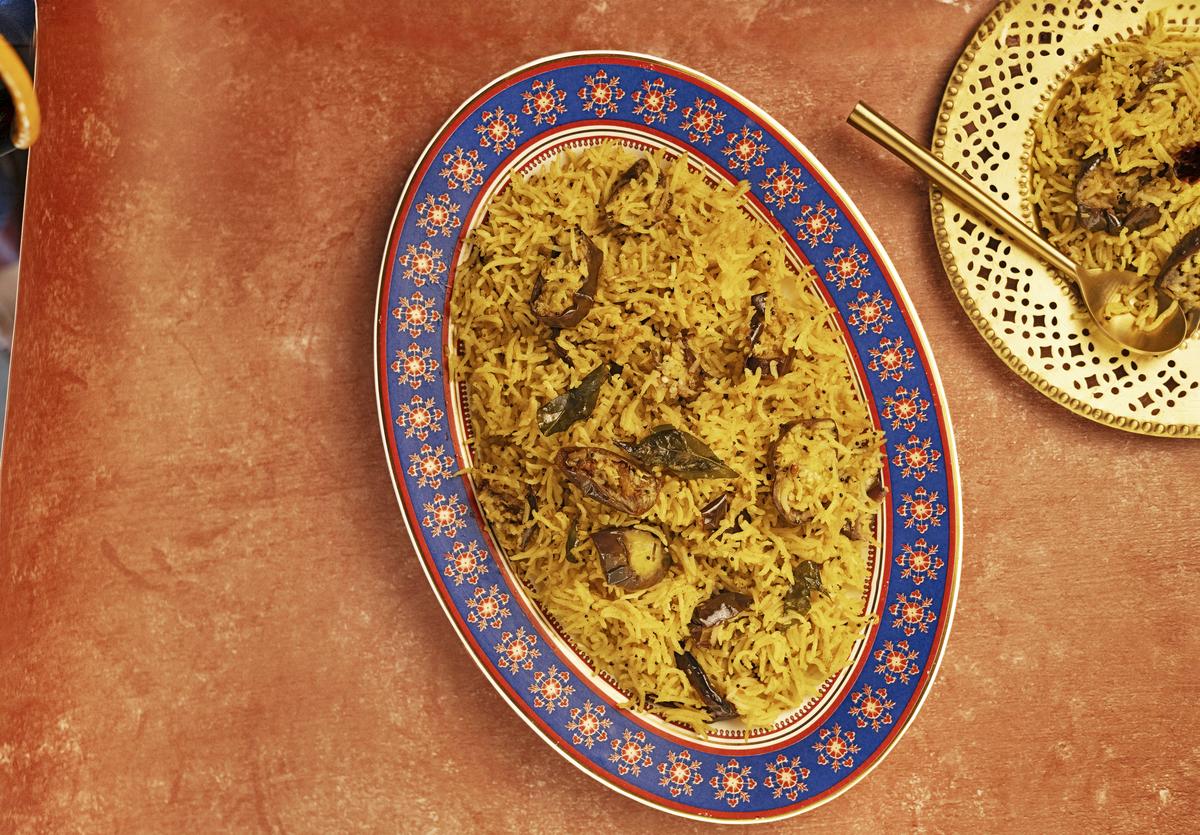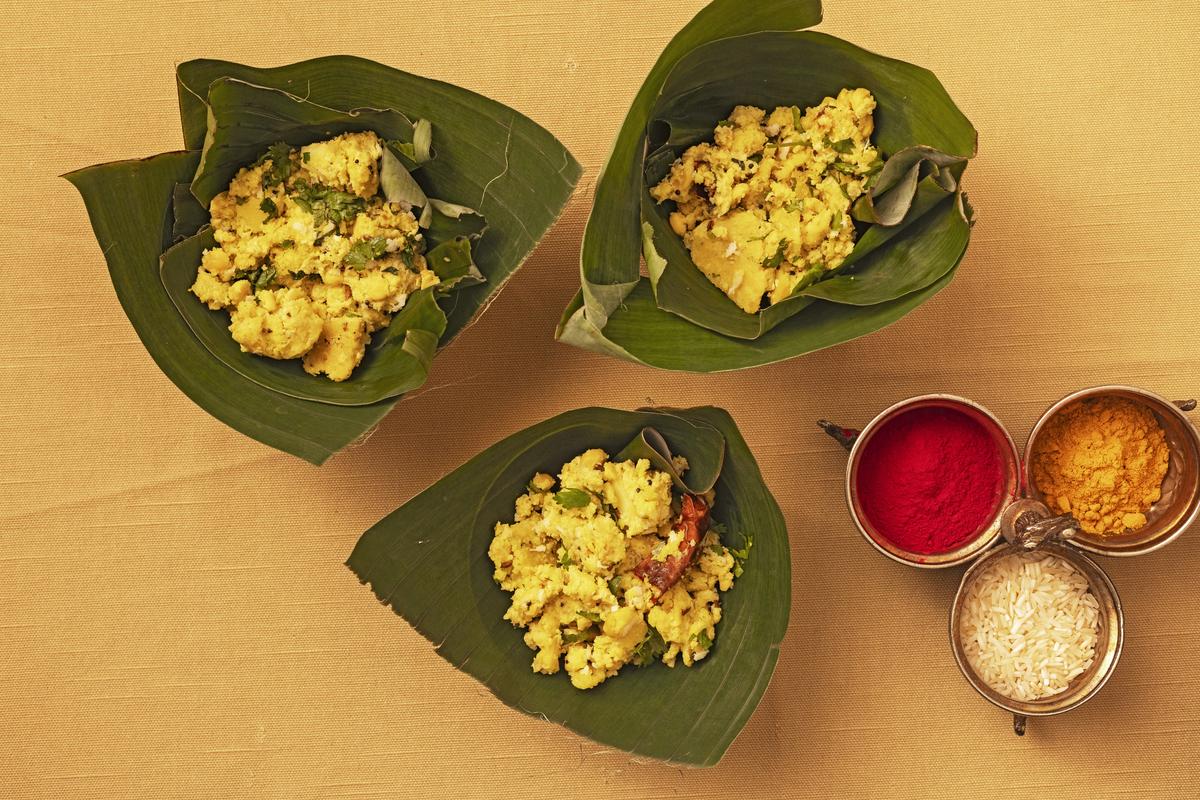Ever since I have been following celebrity nutritionist Rujuta Diwekar’s work, I have wanted to ask her one question: ‘do you eat out?’ “Growing up, no one really ate out. The first time I did, was when I was in Class VIII. Eating out to celebrate wasn’t really a concept then. Even today, I eat out only when I am travelling and opt for regional delicacies. Dal khichdi tops this list and is available world-over,” says Rujuta, who has been promoting eating home food, and championing local, seasonal produce for years.
The book’s cover
| Photo Credit:
Special Arrangement
A philosophy she has carried forward in her debut cookbook, Mitahara (published by Dorling Kindersley). The book, Rujuta writes in the preface, ‘aspires to help you explore the full potential of something as simple as khichdi by cooking it at home and not having it delivered to you from a cloud kitchen. It aims to remind you of the forgotten wisdom of eating in sync with the seasons’.
Ragi laddoo
| Photo Credit:
Dorling Kindersley
As someone who discovered the joy of cooking during the pandemic, Rujuta says she never prioritised cooking in her early years but the lockdown changed things. “It was a journey of self discovery and adventure. I discovered that cooking isn’t a menial task; it is creative, engaging, and entertaining. Cooking is a life-saving skill, and making a meal for yourself is the OG form of self love and self care,” says the wellness expert who started with dishes like khichdi, usal (a spicy curry made from sprouted legumes), batata (potato) bhaji, and puris.
5 combinations for everyday eating
Rice/puran-poli/bajra roti with ghee
White butter with ragi dosa/ragi roti
Use dals and peanuts in chutneys, podis and eat them with idli, upma, etc
Buttermilk/chaas with jeera and salt, especially after a large meal
Use besan to make bhajjias and pakoras with rare gourds that are wild, uncultivated
During this time, Rujuta writes that she ‘woke up every day longing to cook more’, and this newfound love was why she agreed to work on Mitahara. “I did not want to write any recipes for weight-loss, or anything that did injustice to India’s culinary wisdom,” she says.
Vangi bhaat
| Photo Credit:
Dorling Kindersley
With Mitahara, Rujuta has taken a seasonal approach to recipes, and primarily features Maharashtrian dishes that she grew up eating. Think vangi bhaat, bajra raab, thalipeeth and loni in winter; dahi poha, kokum saar, aamras puri in summer; ukadiche modak, narali bhaat, shewla bhaji in the monsoon; and also dishes like amboli, ambe dal, and besan cheela that are consumed when seasons change.
As a child, Rujuta says she grew up eating only dishes that “had a name in Marathi”. “My mother would bring home fresh vegetables from work every evening, and this is what we cooked with,” she says, “I am a fourth-generation working woman in my family. My mother, ajji (grandmother), were all working women who were always interested in our good health, and making food that was light and nutritious. The recipes were diverse, tasty, and did not take up too much time.”
Ambe dal
| Photo Credit:
Dorling Kindersley
With Mitahara, she gives readers the freedom to play around with the recipes. ‘Cooking can be a breeze if you let go of the checklist, food pictures, or recipe. If you did not remember to put in an ingredient, it probably was not important to begin with. Allow this book to be your framework. Then take over, put yourself in the dish and, only then can you truly own it’, she writes in the book. “When you cook, and share recipes, you begin to realise there needs to be room for everyone’s choices and the need to compromise. Only then can we thrive as a society. If we don’t encourage this in our kitchens, we will lose out on our culinary heritage. A dish is yours only if it has a bit of you,” Rujuta says.
Chole
| Photo Credit:
Dorling Kindersley
It comes as no surprise that Rujuta does not have Swiggy and Zomato on her phone. She often refers to cooking as a classical art form, and also mentions how cooking styles change when people change. “Earlier, I would make my rice and usal separately. Over time, I made it together as a one-pot meal. I also realised that not all ingredients go together,” she says, adding that legumes such as moong, lobia (black eyed peas), chawli (cowpeas), etc make for great one-pot meals.
Lastly, Rujuta says apart from cooking, there is no bigger joy than feeding others. “It allows women to be seen and appreciated. Cooking is a skill that comes with practice; less technical and more experiential.” So, what are you cooking today?
Priced at ₹691, Mitahara is available online
Published – July 11, 2025 09:49 am IST

